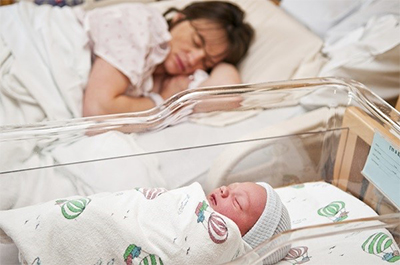New parents receive lots of advice, much of it outdated or simply wrong. “You will find that your very own instincts will help you sift through the myths and amazing amounts of information out there,” says Teresa McCullen. Tips from family, friends, bloggers and parenting experts can be both comforting and confusing. Don’t believe these 12 myths:
Myth 1: Never take your newborn outside?
Unless there’s a blizzard or a heat wave, fresh air is good for your baby. But avoid crowded, confined areas like malls or restaurants, as unvaccinated newborns may catch infections. Breastfed infants have an additional layer of protection they receive from their mother’s milk.
Myth 2: Too much holding spoils the baby.
Babies cry to let us know they’re hungry, tired, in pain, or need comforting. You can’t spoil infants by picking them up when they’re crying, so don’t worry that you’re creating a needy child. Responding to children’s cries helps them learn to trust.
Myth 3: Babies can’t roll off furniture.
Your newborn won’t learn how to roll over for several months, but even the littlest babies squirm around. A baby on a changing table or bed could wriggle over the edge. Remember those heavy heads can cause a baby to tip over. Never leave even the youngest baby unattended on a high surface.
Myth 4: Never wake a sleeping baby.
During the first few weeks, your pediatrician may recommend that you feed your baby every two to four hours—day and night—to ensure that he or she gains weight properly. Once your pediatrician feels that your newborn has gained enough, he or she will say it’s OK to wait until your baby wakes up for feedings.
Myth 5: Swab the umbilical cord stump with alcohol at every diaper change.
Swabbing with alcohol may actually slow down the healing process. Today, doctors recommend keeping the stump clean and dry until it falls off.
Myth 6: Vaccines aren’t necessary and cause autism.
The Centers for Disease Control and Prevention (CDC) recommends immunizations to keep babies from developing deadly diseases. Some parents hear rumors that thimerosal, a preservative once common in vaccines, causes autism, so they shun the shots. But extensive research has found no link between the two. Vaccines save lives.
Myth 7: Breastfed babies don’t spit up.
All babies burp, drool, or spit up. If your baby is gaining weight, it’s likely nothing to worry about.
Myth 8: Crib bumpers protect your baby’s head.
Bumpers are dangerous. If a baby’s head gets wedged against a bumper, he or she doesn’t have the dexterity to get free, so the baby can suffocate or get strangled by the strings that tie bumpers to crib rails. The American Academy of Pediatrics (AAP) recommends against them.
Myth 9: Turn your baby’s car seat around when he or she weighs 20 pounds.
All babies need to sit in rear-facing car seats for at least the first 12 months, even if they weigh more than 20 pounds. The American Academy of Pediatrics actually recommends babies remain rear-facing until their second birthdays.
Myth 10: Freeze teething rings for relief.
To ease the pain of teething, babies chew on teething rings. Chill the rings in the refrigerator, not the freezer, as direct contact with extreme cold can harm your baby.
Myth 11: Back sleeping causes flat heads.
Since the AAP recommended that all babies sleep on their backs, there’s been a decrease in sudden infant death syndrome but an increase in flattened-head syndrome. The problem only occurs occasionally, usually when a baby sleeps with his or her head in the same position. To prevent it, alternate his or her head position every night. When your baby is awake, consider using a front carrier to reduce time when baby’s head is on a hard surface.
Myth 12: Walkers encourage walking.
Putting your baby in a walker can actually delay his or her ability to learn to walk. Walkers move very quickly, so you might not be able to stop your baby from falling down a flight of stairs. The AAP has called for a ban on walkers.
“The American Academy of Pediatrics, the U.S. Consumer Product Safety Commission, and Safe Kids are reliable resources” says Teresa McCullen. She adds, “Soon you will have your own tried and true collection of parenting tips and tools; that you can use and share with confidence”.




